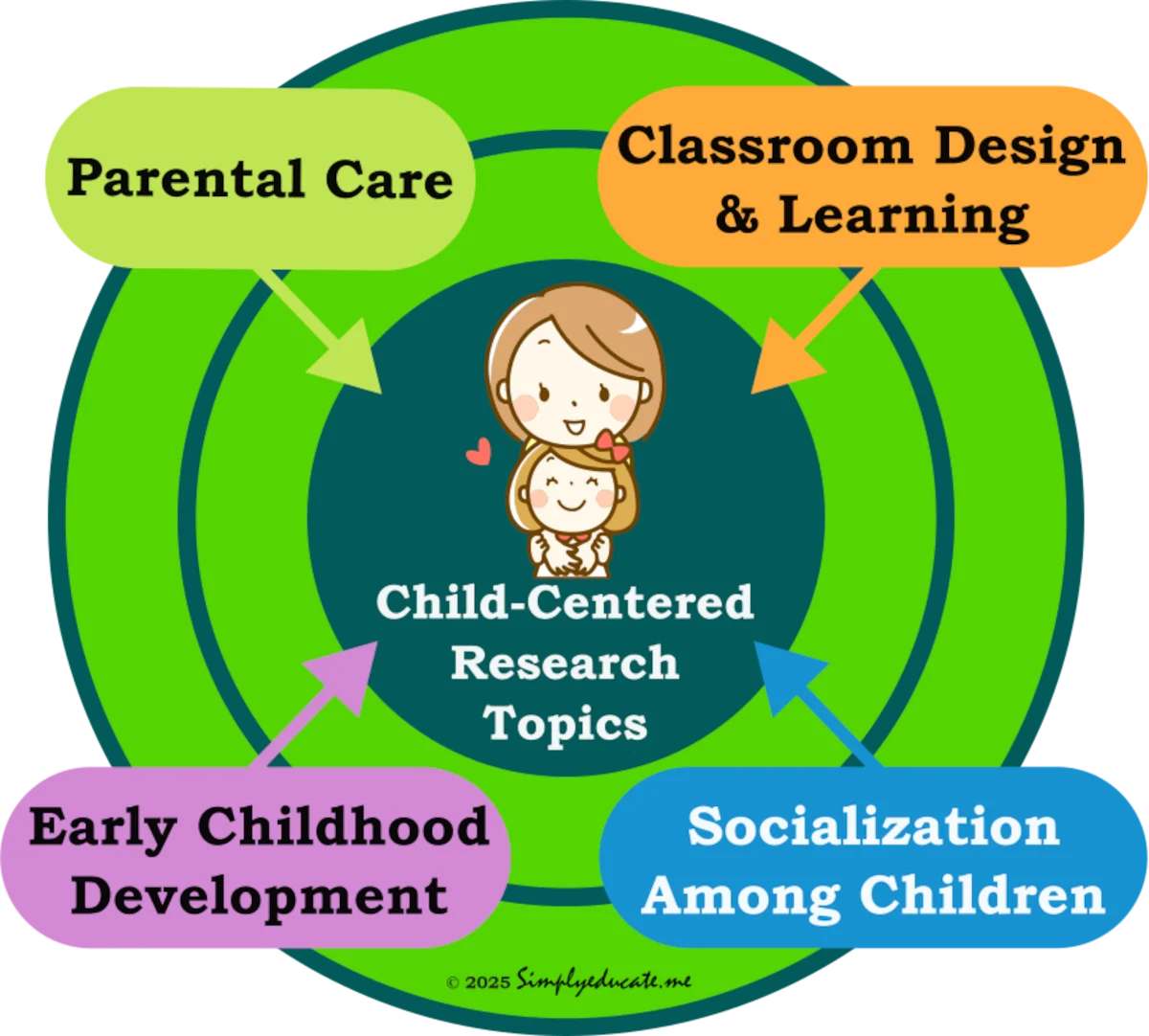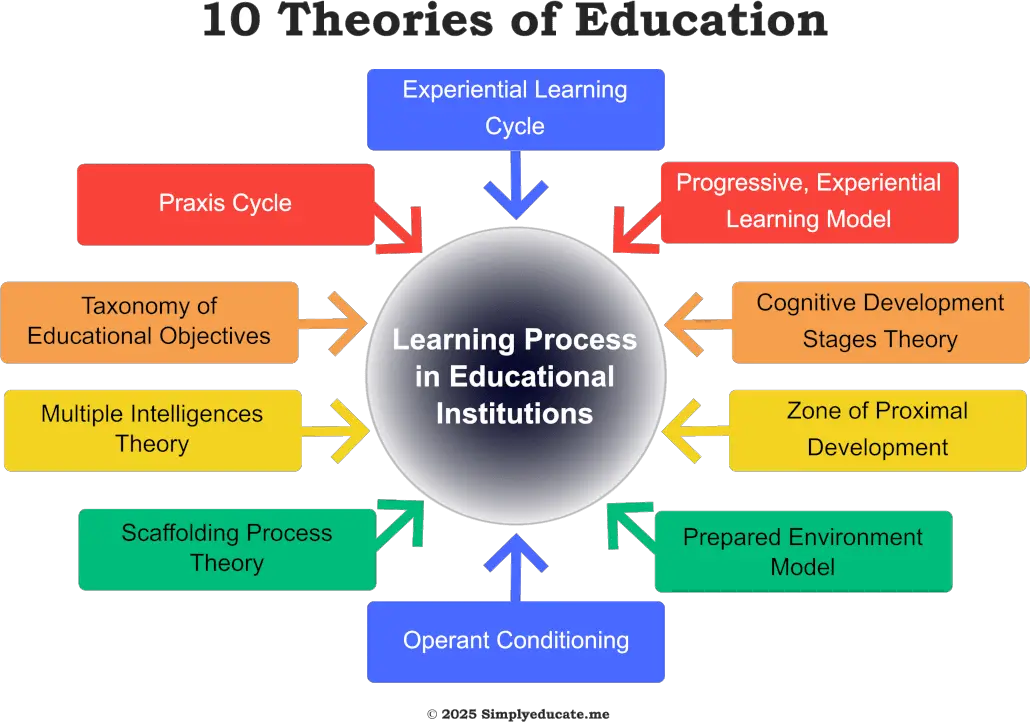
One of the common concerns of graduate students is finding topics relevant to their field of specialization. If you are a graduate student of education, here are examples of education research topics that you might want to focus on as your research topic.
I prepared this list based on my observations and experience. Also, I wrote these research topics on education issues in response to graduate students taking up my advanced statistics class who need my guidance on what questions to ask. Now I have a published list that I can refer to them to jumpstart their research venture.
Table of Contents
As a well-founded institution that drives the economy, the educational sector keeps evolving through the years as society changes with advanced technology and innovations. Together with these advancements arise new opportunities as well as challenges that confront educators and educational administrators.
Research as a Tool for Solving Problems
It is widely recognized among administrators that research is invaluable in developing solutions to issues and problems that confront their schools. Using the systematic and rigorous investigation approach, new themes, ideas, and perspectives emerge that shape educational institutions’ management.
Given this scenario, what are some of the issues and concerns confronting the educational sector? Despite technological advances, there appear to be still unaddressed problems that affect children. Child-centered education brings into focus research topics in education that you, as a graduate student taking up advanced education courses, or perhaps as a school administrator, can focus on.
Here are four examples of research topics on education that you may explore. The list focuses on children as vulnerable members of society.
Four Child-Centered Education Research Topics
1. How children react to loss of parental care
The environment where learning takes place facilitates brain development (Jackson and Tester, 2008). Neuroscience research emphasizes that early brain development is strongly shaped not only by genetic factors but also by emotional experiences within the family.
Love and consistent affection, especially from a mother, play a vital role in wiring the brain’s neural pathways that support trust, security, and healthy emotional growth (Wall, 2018). When children lose parental care—whether through the death of a mother, separation of parents, or a parent’s long-term absence due to work—the lack of affection and emotional support can disrupt normal brain development (Schore, 2001). Such disruptions may manifest in heightened stress responses, difficulty concentrating, delayed social skills, or struggles in regulating emotions.
In this context, studying children’s experiences of grief and loss becomes essential for understanding how the absence of parental care influences cognitive, emotional, and social outcomes. Research in this area may examine how children cope with grief, what protective factors (such as supportive relatives, peers, or teachers) buffer its impact, and what long-term effects unresolved grief may have on learning and behavior. Asking the right research questions about children in grief provides opportunities to design interventions that foster resilience, emotional healing, and healthier developmental trajectories despite early adversity.
Research topics on education that focus on grief and loss in children generate research questions like the ones I enumerate below.
Example Research Questions:
- What are the causes of grief among children?
- How do babies express their grief?
- How does grief affect children in various developmental stages?
- How do children cope up with the loss of a loved one?
- Is there a difference in the behavior of children who lost their mothers compared to those who did not?
- Is there a difference between the loss of a mother or a father?

2. Early childhood development
Nowadays, there are so many stresses and changes in the environment that could threaten or influence children’s normal development. Mothers, while undergoing pregnancy, get subjected to stresses around them. A polluted environment, stressful work, and unhealthy food may pose undue harm to the developing offspring.
New mothers are particularly very much concerned about the development of their children. As children grow and deviate a little from the average growth and development pattern of children, questions arise in their heads whether their children need special care.
What are the questions mothers ask regarding childhood development? I list the following questions on child development that research could help shed light on.
Example Research Questions
- What are the early warning signs of abnormality among toddlers?
- Which intervention works best in addressing a specific type of abnormal behavior among small children (e.g., inability to speak, inability to crawl, losing eye contact, failure to respond to sound)
- Is there a relationship between frequency and duration of parent contact and child development?
- How do mothers respond to signs of abnormality in their children?
3. Classroom and learning
The environment where learning takes place facilitates brain development (Jackson and Tester, 2008).
Intelligence cannot be attributed only to genes but also the surrounding environment. In educating children, the learning environment can play a significant role in shaping growing children’s minds. Classroom design is one such concern. In fact, Montessori as one of the popular education theorists proposed a prepared environment where learning spaces are orderly, aesthetically pleasing, and rich in sensory materials that invite exploration.
Research topics on education that focus on classroom design generate questions like the ones I enumerate below.
Check out the 10 major theories of education that will guide your identification of education research topics. This article provides a description of the theory with diagrams to illustrate the central concepts.

Example Research Questions
- General Question: Does classroom design affect children behavior?
- What are the development needs of children that can be addressed by classroom design?
- How can classroom designs be made more stimulating to children?
- Is there a relationship between classroom design and the number of uneasy children?
- How do placements of play structures influence children behavior?
4. Socialization among children
With the internet preponderance nowadays, children become more engrossed in their laptops or desktop computers as part of their socialization activities. They now have more friends on the internet than in real life. Teenagers, in particular, are beset by this problem. Since they spend most of their time in front of computer screens, they were referred to as the “screenagers.”
There have been increased concerns about children being unable to socialize effectively with real persons due to too much “socialization” online. This condition also exposes them to grave abuse as a result of their online ventures.
Example Research Questions
- Is there a relationship between the frequency and duration of online activity among children and study time?
- Is there relationship between age and the type of online material visited by children?
- How do children respond to strangers requesting details about them?
- Is there a relationship between children’s irritability and intensity of computer use?
- What factors influence the time devoted by children to online activity?
These research topics on education issues will enable you to get started on your research endeavor along the field of education. If you want to explore other research topics on child-centered education, you might want to try other means, such as brainstorming.
I hope you find the list helpful in your quest for a better life for children you mentor. Undoubtedly, the parents will be glad that their children were well taken cared of.
References
Gerhardt, S. (2006). Why love matters: How affection shapes a baby’s brain. Infant Observation, 9(3), 305-309.
Jackson, R. J., & Tester, J. (2008). Environment shapes health, including children’s mental health. Journal of the American Academy of Child & Adolescent Psychiatry, 47(2), 129-131.
Schore, A. N. (2001). The effects of early relational trauma on right brain development, affect regulation, and infant mental health. Infant Mental Health Journal: Official Publication of The World Association for Infant Mental Health, 22(1‐2), 201-269.
Wall, G. (2018). ‘Love builds brains’: representations of attachment and children’s brain development in parenting education material. Sociology of Health & Illness, 40(3), 395-409.


